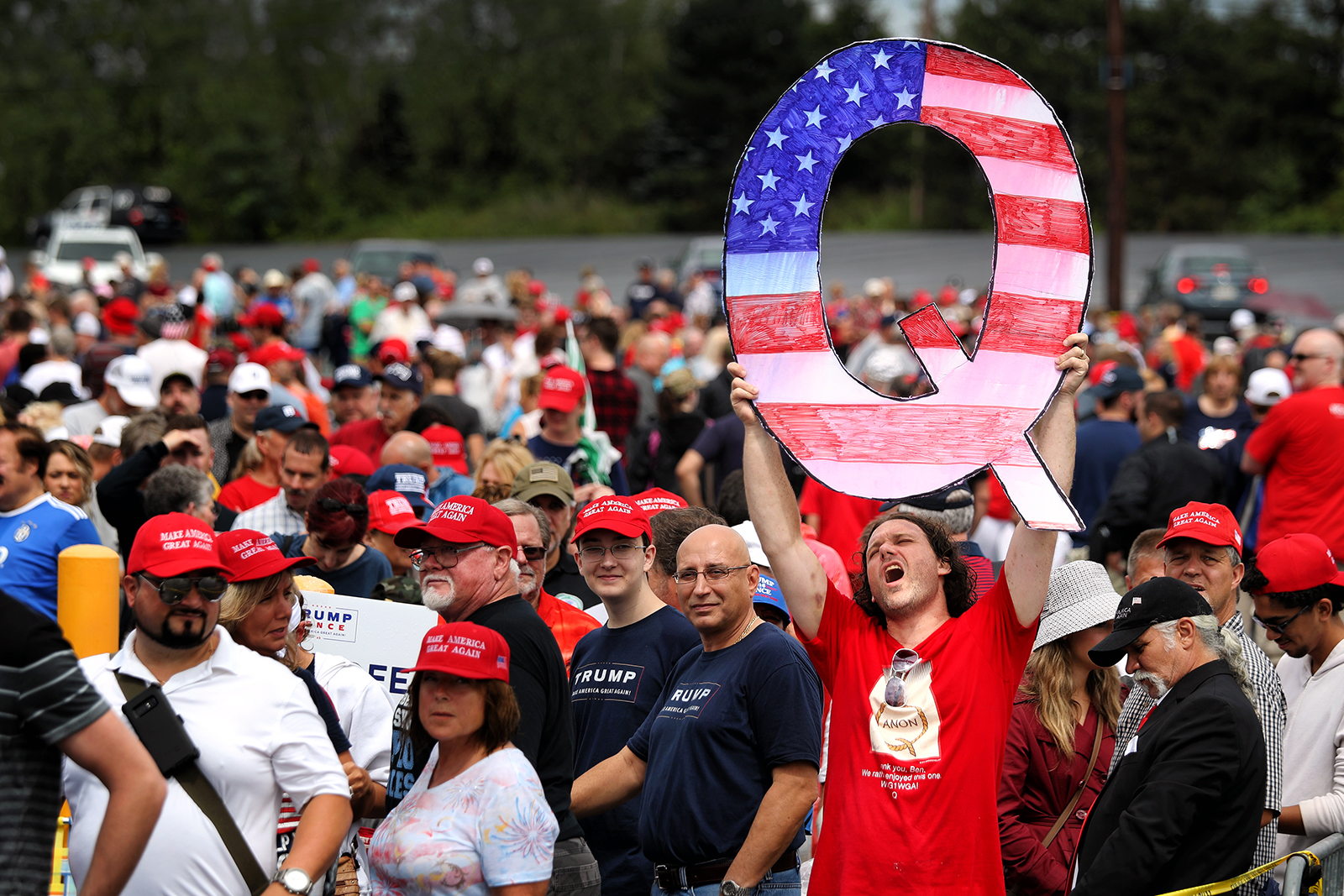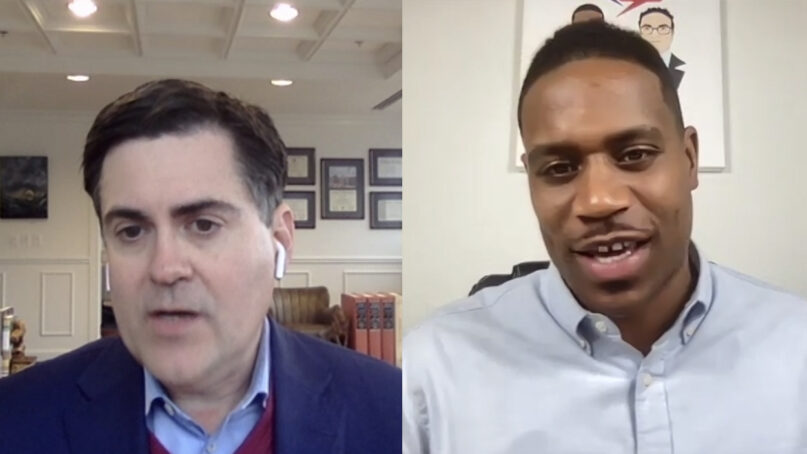(RNS) — Two Christian experts on religion and culture called on faith leaders Thursday (Jan. 7) to combat the conspiracy theories that they say contributed to the mob violence at the Capitol.
“How much do we have to see, from the Comet Pizza situation all the way through to what happened yesterday?” asked Russell Moore, president of the Southern Baptist Convention’s Ethics and Religious Liberty Commission at a previously scheduled online event with AND Campaign President Justin Giboney.
“That’s going to require leaders who stand up and say, ‘What you’re saying right now isn’t true,’” said Moore. “And that’s going to take courage because there are going to be people who are going to say, ‘Well, if you don’t acknowledge what we’re saying, that means that you’re not one of us.’”
Moore and Giboney, speaking to an audience of journalists at a session of the Ethics and Public Policy Center’s Faith Angle Forum, both urged religious people to rise above the rhetoric that helped lead to the riot that left several people dead.
RELATED: Faith groups among those calling for Trump’s impeachment after US Capitol occupation
Giboney, whose nonpartisan think tank focuses on applying biblical values to pressing contemporary issues, attributed the violence at the Capitol to a breakdown in society that needs to be addressed.
“I think you see a brokenness in the country, and you see a brokenness in some spaces of Christianity,” said Giboney, co-author of “Compassion (&) Conviction: The AND Campaign’s Guide to Faithful Civic Engagement.” “I mean, what could have more clearly symbolized Trump’s tenure than what happened yesterday?”
He added that many are frustrated that there were “professing Christians” among those “who allowed Trump to incite this insurrection” and “used the Bible to validate Trump’s leadership.” They should have known better, Giboney said.
“Our faith talks a lot about to kind of be skeptical of that kind of power,” he said.
Saying that the “insurrection incited by the president of the United States is a moral abomination,” Moore emphasized the need to speak the truth in the face of rumors on topics ranging from QAnon to vaccines.

David Reinert holds up a large “Q” sign while waiting to see President Donald Trump at his rally on Aug. 2, 2018, in Wilkes Barre, Pennsylvania. “Q” represents QAnon, a conspiracy theory group. (Photo by Rick Loomis/Getty Images)
“I talk to pastors every single day who are having to deal with crazy conspiracy theories related to vaccines or related to whatever, in their communities,” he said. “And after a certain point, many people just become exhausted by this. We can’t be exhausted. We have to be the people who recognize reality and have the integrity to call reality what it is, which means having mouths that line up with our hearts, as Jesus taught us to do.”
Moore said conspiracy theories are causing handwringing among lay people as well.
“I’m having conversations with not just pastors, but also with people who are just saying, ‘I look at my family members and what they’re posting on Facebook, and I think, how have I failed like this?’ or pastors say, ‘I look at what church members are posting on Facebook and I think, how have I failed?’” he recalled. “And what I’ve had to say to all of them is, you can’t fix this and correct it in the time of a day.”
RELATED: SBC leader Russell Moore to Trump: Time to leave. ‘People are dead’
He said the attachment to conspiratorial thinking reinforced a herd mentality, long driven by social media.
“Part of that is the sense that the way that I protect myself is by joining myself to a herd, adopting everything that that herd believes or says as a shibboleth and then projecting a kind of swagger,” Moore said. “And it’s killing us. It’s killing us as a society. It’s killing us as communities. It’s killing us as churches.”
Giboney said racial tensions are also hurting the country, as well as an “addiction to power” he saw reflected in the Georgia Senate runoff between Democrat Raphael Warnock and Republican Senator Kelly Loeffler.
He said theological considerations should override “a skewed sense of patriotism” that has taken hold of some conservatives.
“You have a Black pastor whose sermons about militarism, about police brutality were all called radical and un-American, even when we have these obvious examples of both and how they hurt people and how they deny human dignity,” said Giboney, who is based in Atlanta. “But for some reason, they shouldn’t be discussed in the pulpit.”
Both Giboney and Moore said much work lay ahead, from greater security for upcoming events on the National Mall, to working with the next administration on areas on which people with disparate views can agree.
“We can’t give in to despair,” Moore said. “And we can’t grow weary in well-doing, as the Apostle Paul taught.”





